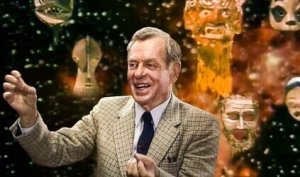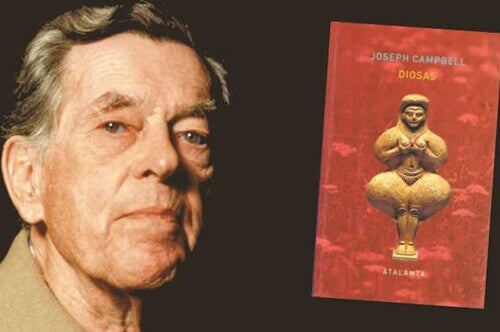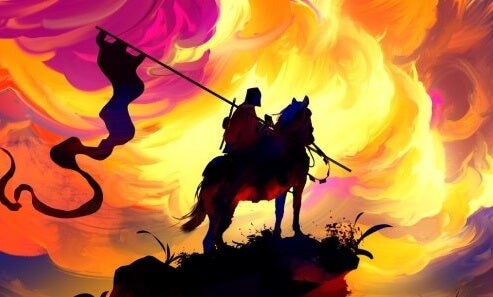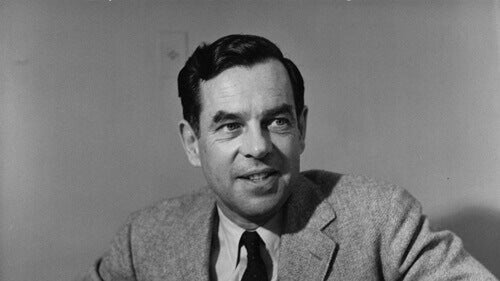Joseph Campbell and the Power of Myth

Joseph Campbell was, without a shadow of a doubt, one of the greatest mythologists of all time. His life changed when his father took him to the American Museum of National history as a young boy. There, he discovered the Native American cultures that awoke a curiosity in him that lasted until his death.
He studied math and biology, but his main interests were culture and the human mind. That’s why he soon also got himself a degree in English and medieval literature. They were areas that allowed him to get closer to that which he was truly passionate about: myths.

Joseph Campbell traveled to Europe to study languages. During his time in the Old Continent, he also got to know the work of Sigmund Freud and Carl Gustav Jung. He was especially seduced by Jung’s writings. After his time there, he went back to the United States. He devoted five years of his life to reading. That’s how he came to ruminate over the idea that all myths, of all eras, had a similar structure. That was the seed of his great work.
“The usual hero adventure begins with someone from whom something has been taken, or who feels there is something lacking in the normal experience available or permitted to the members of society.”
-Joseph Campbell-
Joseph Campbell and the power of myth
Campbell traveled a lot, including two long trips to India and Japan. After the latter, he came to believe that United States culture was very ignorant about different cultures and myths. That’s why he started the task of revealing this information to his people. He did this until his final days.

In 1988, taping began on the special Joseph Campbell and the Power of Myth. It was originally a documentary. Every episode contained a conversation between Joseph Campbell and journalist Bill Moyers. The conversation centered around myths. The complete TV series was only broadcast one year after Campbell’s death. These interviews formed the foundation of a book titled The Power of Myth.
Campbell succeeded in reviving mythology. Contrary to what many people believed, myths weren’t just tales people told around a campfire for fun. Beyond that, they were powerful stories. Their objective was to guide the human spirit. He was able to test his theory that, in essence, all human myths were similar. Campbell called this common pattern the “monomyth” or the “hero’s journey”.
The hero’s journey
The hero’s journey, or the monomyth, defines the basic model that all of the world’s major myths or epics follow. Campbell argued that this model is also valid across time. The structure is composed of 17 stages. These comprise three basic stages: the departure, the initiation, and the return.
All of this is structured in the following way:
- The departure includes the call to the adventure, the rejection of the call, supernatural help, the crossing of the first threshold, and the belly of the whale.
- Initiation stage. This one is made up of the different tests, the encounter with the goddess, the woman as a temptress, reconciliation with the father, the grand finale, and the final gift.
- The return includes declining to return, the magic flight, and the rescue from without. It also contains the cross of the remote threshold, the master of worlds, and the freedom to live.
In summary, Joseph Campbell proposed that all myths had a similar basic plot. Essentially, they involved a hero who accepts a call to enter a strange world. In this new world, they have to confront various tests and tasks. Sometimes they obtain the aid of a supernatural being through all of this. If they’re able to overcome the great test, they receive some equally great gift or blessing. Then, they confront the dilemma of whether or not to return to their old world. If they return, they’ll face new problems and, when they do, they’ll bring their gift to their old world to improve it.

The effects of the power of myth
Finally, Joseph Campbell’s work has had a special impact on the worlds of film and literature. Works such as The Lord of the Rings or film sagas such as Star Wars follow the structure of the hero’s story (or the monomyth) almost step by step.
Nevertheless, the contribution that Campbell’s work has made goes far beyond that. He considered myths an “experience of meaning”. In other words, an approximation to narratives that gave humanity wisdom and meaning. They’re tales that allow people to return to the core of themselves and get a profound message coded in symbols. Yet, they still fulfill the task of expanding peoples’ consciousness.
Through his research, Campbell came to develop a life philosophy that many find he summarized in one of his most common quotes. That quote is “Follow your happiness”. This is a motto, a synthesis, and also a purpose. He urges people to turn themselves into that hero that seeks out the gift that will allow them to improve the world they live in.
All cited sources were thoroughly reviewed by our team to ensure their quality, reliability, currency, and validity. The bibliography of this article was considered reliable and of academic or scientific accuracy.
- Campbell, J. (1959). El héroe de las mil caras: psicoanálisis del mito. Fondo de Cultura Económica.
This text is provided for informational purposes only and does not replace consultation with a professional. If in doubt, consult your specialist.








